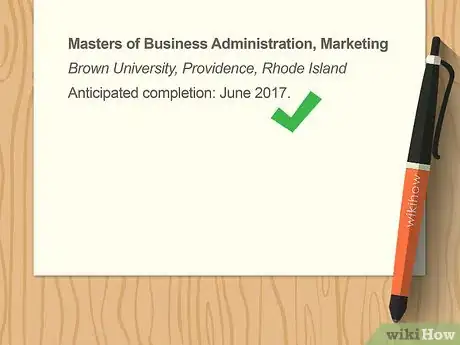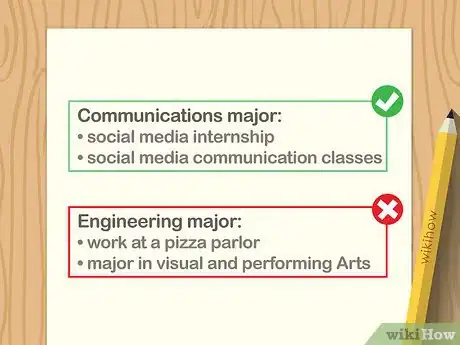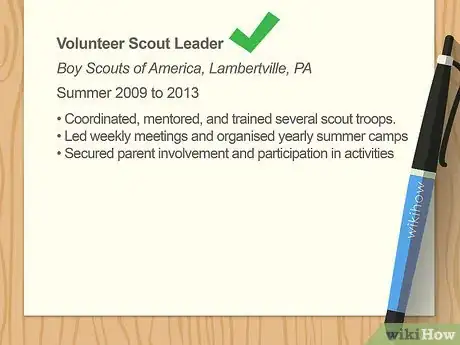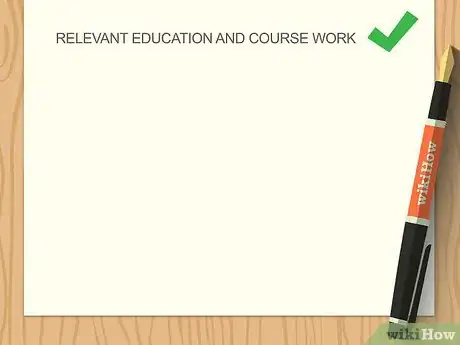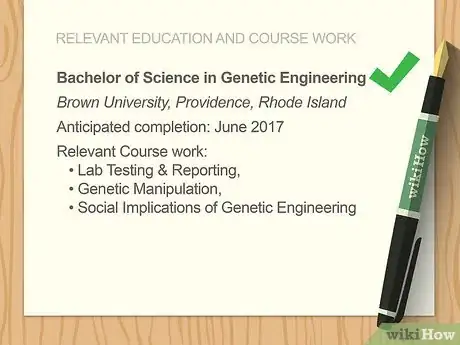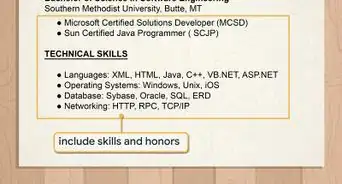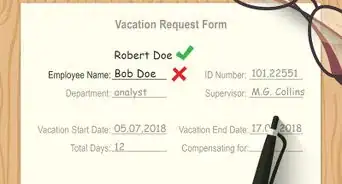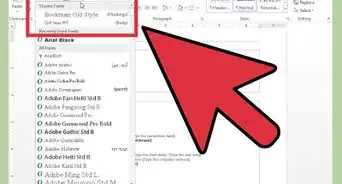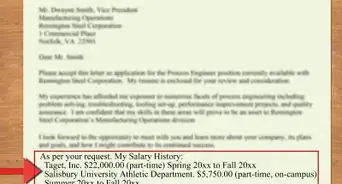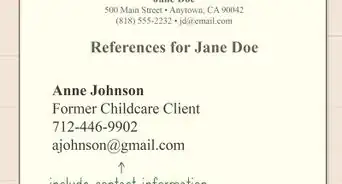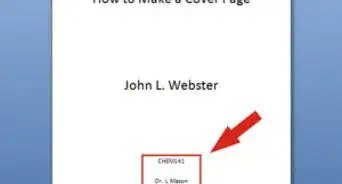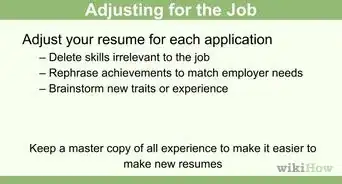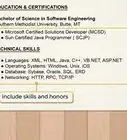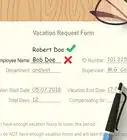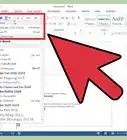This article was co-authored by Amber Leima and by wikiHow staff writer, Christopher M. Osborne, PhD. Amber Leima is a Resumé Consultant and the Founding Editor of Best Words Editing. She has two decades of experience helping people and companies express their unique value. Amber is a master at drawing out what matters from your personal story and promoting it to optimal effect, crafting beautifully clear resumés and on-point personal branding supported by thoughtfully-structured interview coaching. She holds Master’s and Bachelor’s degrees in English Literature from the University of Sussex, England. Her clients have been hired by their employers of choice, including Amazon, Meta, Microsoft, and PayPal.
There are 8 references cited in this article, which can be found at the bottom of the page.
This article has been viewed 354,190 times.
Crafting a great resume isn’t easy! One of the many tricky parts is choosing what to add and what to leave out—for instance, should you list some relevant coursework? Adding coursework can be particularly important if you are a recent graduate and have little relevant work experience. If you determine that you should indeed add relevant coursework to your resume, it’s critical to ensure it is truly relevant to the position for which you are applying—and is listed in the right place with sensible formatting!
Steps
Selecting Coursework for Inclusion
-
1Add coursework to your resume if you have limited relevant work experience. Recent graduates looking for a job or current students looking to build their resume through an internship should always include relevant coursework. Your coursework can make up for a lack of hands-on experience in the industry.[1]
- The general cut-off point is typically 5 years of relevant work experience: if you have less than this, add relevant coursework to your resume; if you have more than this, only add relevant coursework if it’s hyper-specific to the job or internship.
- Still not sure if you should add coursework to your resume? Ask yourself if you’ll rely on talking about coursework during an interview. In other words, do you have enough relevant work experience that you won’t need to mention your coursework during an interview? If the answer is “yes,” then you typically don’t need to add coursework to your resume.
-
2Write down all your completed and in-progress degrees and specializations. This process might feel like a time-waster, but it’s the best way to ensure you don’t forget any classes you have taken, and it gives you a larger sense of your educational background. For formatting convenience later on, list each main degree you’re earned individually, and under each add any specializations, the educational institution where you earned the degree, and the institution’s location.[2]
- Remember: just because you’re not done with a course or degree doesn’t mean it’s irrelevant! Always list any in-progress coursework and note the planned completion date of the course or degree.
Advertisement -
3List 5-10 potentially job-relevant courses for each of your degrees. At this point, define “relevant” very broadly! Rack your brain—and consult your transcripts, grade reports, and old notebooks if necessary—to come up with a list of all the courses that might be even tangentially relevant to the job or internship for which you are applying. Add more courses than you’ll actually use on your resume for now—you’ll whittle the list down shortly![3]
- List the courses by their actual title, not their course number or some nickname: for example, “United States History to 1877,” not “U.S. History 101” or “American History I.” This isn’t absolutely essential while brainstorming, but it makes things easier once it’s time to transfer coursework to your resume.[4]
-
4Select 3-6 courses per degree that best pertain to the job or internship. Look over the detailed list of your educational history. Consider which courses genuinely apply to the position for which you are submitting your resume.[5] Chopping down the list can be tough, but it’s necessary!
- If, for example, you’re a communications major and are applying for a social media internship, any social media communication classes you’ve taken should be considered relevant. Or, if you’re applying for an HR job and have taken courses on finance and payroll as part of your human resources major, definitely include these if the position involves areas like compensation and benefits.
- You may need to further cut down this list, depending on the amount of space available on your resume.[6] Go ahead and start thinking about which courses are the absolute most relevant and impactful for the specific job or internship.
- If your coursework isn't related to the job you're applying for, you might run the risk of going off-topic, being irrelevant, or losing the interest of the hiring manager before you've even been called for an interview.[7]
-
5Use internships and volunteer positions to enhance your coursework. If you’re struggling to come up with 3-6 relevant courses per degree, or the list just feels too light for the position or job, don’t worry! Instead, enhance the list with relevant volunteer experience or in-the-field experience such as an internship or apprenticeship. This could be college-related volunteer work with an organization you completed in your final year of school, or an internship with an organization that relates to the position for which you are applying.
- For example, if you are applying for a position at an aerospace engineering firm, you should list your internship at an aerospace research facility. Or, if you are applying for a social media position at a marketing company, you might list volunteer experience as the social media director at a local festival.
Adding Coursework to Your Resume
-
1Create a separate education and coursework section for your resume. List your education details before your work experience if your education feels stronger and more relevant to the position. If you've graduated in the past 5 years, it's likely that your education section will be more robust than your work experience section, so put your education section first.[8]
- Suggested section title: Relevant Education and Coursework.
-
2List high-relevance degrees first, but go chronologically otherwise. Standard resume formatting lists the most recent degrees you have received, then continues the list in chronological order (newest to oldest). But, if you have an older degree (with coursework) that is more relevant to the position or shows you have more advanced skills in a certain field, list this first. This will show the employer your relevant credentials up front.[9]
- For example, you may have earned a degree in English, but are now studying graphic design at your local college. If you are applying for a position at a graphic design firm, list this educational experience first, before your English degree.
- Suggested formatting:
Bachelor of Science in Genetic Engineering
Brown University, Providence, Rhode Island
Expected completion date: 05/2017
-
3Present 3-6 courses as a list, or 1-2 courses in more detail. Keep your relevant coursework linked to the appropriate degree program—in other words, don’t list all your degree info and then list all your coursework. The only exception to this is if you’re in a field (such as some STEM fields) that highly values coursework, in which case you may choose to create separate “Education” and “Relevant Coursework” sections.[10]
- Example degree and list of 3-6 relevant courses:
Bachelor of Science in Genetic Engineering
Brown University, Providence, Rhode Island
Expected completion date: 05/2017
Relevant coursework: Lab Testing & Reporting, Genetic Manipulation, Social Implications of Genetic Engineering. - Example of detailed coursework info (added below degree info):
Advanced Studies in Marketing and Advertising
Hudson Community College, Hudson, New York
Expected completion date: 05/2015
- Example degree and list of 3-6 relevant courses:
-
4Include honors rather than graduation dates if you’re not a recent grad. Only list graduation dates if you are a recent graduate—typically 5 or fewer years out of school, and definitely not more than 10—or if you are in the middle of completing a degree. You want the potential employer to be more interested in the degree, not when you earned it. This is especially true if you earned your degree 5-10 years ago, as you don’t want the employer to think your education is stale or outdated.[11]
- It’s also not necessary to list your final GPA for a degree or course, as most employers will not notice the score. But if you graduated with high honors, such as summa cum laude or with honors, make a note of this in your resume.
- For example:
Bachelor of Science in Anthropology, Graduated with Honors
Concordia University, Montreal, Quebec
Relevant Coursework: Advanced Topics in Social Anthropology, Research and Investigation, Advanced Studies in Ancient Cities.
Expert Q&A
Did you know you can get expert answers for this article?
Unlock expert answers by supporting wikiHow
-
QuestionCan I put a school project on my resume?
 Alyson Garrido, PCCAlyson Garrido is an International Coach Federation accredited Professional Certified Coach (PCC), Facilitator, and Speaker. Using a strengths-based approach, she supports her clients with job search and career advancement. Alyson provides coaching for career direction, interview preparation, salary negotiation, and performance reviews as well as customized communication and leadership strategies. She is a Founding Partner of the Systemic Coach Academy of New Zealand.
Alyson Garrido, PCCAlyson Garrido is an International Coach Federation accredited Professional Certified Coach (PCC), Facilitator, and Speaker. Using a strengths-based approach, she supports her clients with job search and career advancement. Alyson provides coaching for career direction, interview preparation, salary negotiation, and performance reviews as well as customized communication and leadership strategies. She is a Founding Partner of the Systemic Coach Academy of New Zealand.
Career Coach
-
QuestionShould I put my education or work experience first on my resume?
 Alyson Garrido, PCCAlyson Garrido is an International Coach Federation accredited Professional Certified Coach (PCC), Facilitator, and Speaker. Using a strengths-based approach, she supports her clients with job search and career advancement. Alyson provides coaching for career direction, interview preparation, salary negotiation, and performance reviews as well as customized communication and leadership strategies. She is a Founding Partner of the Systemic Coach Academy of New Zealand.
Alyson Garrido, PCCAlyson Garrido is an International Coach Federation accredited Professional Certified Coach (PCC), Facilitator, and Speaker. Using a strengths-based approach, she supports her clients with job search and career advancement. Alyson provides coaching for career direction, interview preparation, salary negotiation, and performance reviews as well as customized communication and leadership strategies. She is a Founding Partner of the Systemic Coach Academy of New Zealand.
Career Coach
-
QuestionHow many courses can I mention on my resume?
 Alyson Garrido, PCCAlyson Garrido is an International Coach Federation accredited Professional Certified Coach (PCC), Facilitator, and Speaker. Using a strengths-based approach, she supports her clients with job search and career advancement. Alyson provides coaching for career direction, interview preparation, salary negotiation, and performance reviews as well as customized communication and leadership strategies. She is a Founding Partner of the Systemic Coach Academy of New Zealand.
Alyson Garrido, PCCAlyson Garrido is an International Coach Federation accredited Professional Certified Coach (PCC), Facilitator, and Speaker. Using a strengths-based approach, she supports her clients with job search and career advancement. Alyson provides coaching for career direction, interview preparation, salary negotiation, and performance reviews as well as customized communication and leadership strategies. She is a Founding Partner of the Systemic Coach Academy of New Zealand.
Career Coach
Warnings
- Even if your education and coursework listing feels a bit thin for the position, it’s important not to fabricate coursework on your resume. Your employer may ask you about this made-up coursework, putting you in a position where you must either come clean or be dishonest in your interview.[12]⧼thumbs_response⧽
References
- ↑ https://publichealth.gwu.edu/blogs/careers/2014/04/15/weekly-career-tip-including-relevant-coursework-on-a-resume/
- ↑ https://www.themuse.com/advice/how-to-and-how-not-to-list-education-on-your-resume
- ↑ http://www.fullerton.edu/irvine/student/career/Guide%20to%20resume%20writing.pdf
- ↑ https://publichealth.gwu.edu/blogs/careers/2014/04/15/weekly-career-tip-including-relevant-coursework-on-a-resume/
- ↑ Amber Leima. Resumé Consultant. Expert Interview. 18 March 2022.
- ↑ Amber Leima. Resumé Consultant. Expert Interview. 18 March 2022.
- ↑ Amber Leima. Resumé Consultant. Expert Interview. 18 March 2022.
- ↑ Alyson Garrido, PCC. Career Coach. Expert Interview. 24 January 2019.
- ↑ http://www.fullerton.edu/irvine/student/career/Guide%20to%20resume%20writing.pdf
- ↑ https://career.virginia.edu/blog/how-create-stem-resume-basics
- ↑ https://www.forbes.com/sites/dailymuse/2017/06/07/your-handy-answer-to-how-long-do-i-keep-my-graduation-year-on-my-resume/#3789e7ee6d2e
- ↑ https://www.payscale.com/career-news/2019/01/why-you-should-never-lie-on-a-resume-7-stories-of-people-who-got-caught
About This Article
Referencing your coursework is a great way to show an employer the knowledge and experience you have in a particular field. If you've completed any coursework relevant to the job you're applying for, include it in your resume to show off your skills. To do this, list your coursework in your education section, underneath your degree. Write your degree or course first, then your university or college, followed by your graduation date or anticipated completion date. Then, underneath that, add the subheading “Relevant coursework,” and list 1-3 examples of relevant coursework. For more tips, including how to work out which coursework is most relevant to the job you’re applying for, read on!

